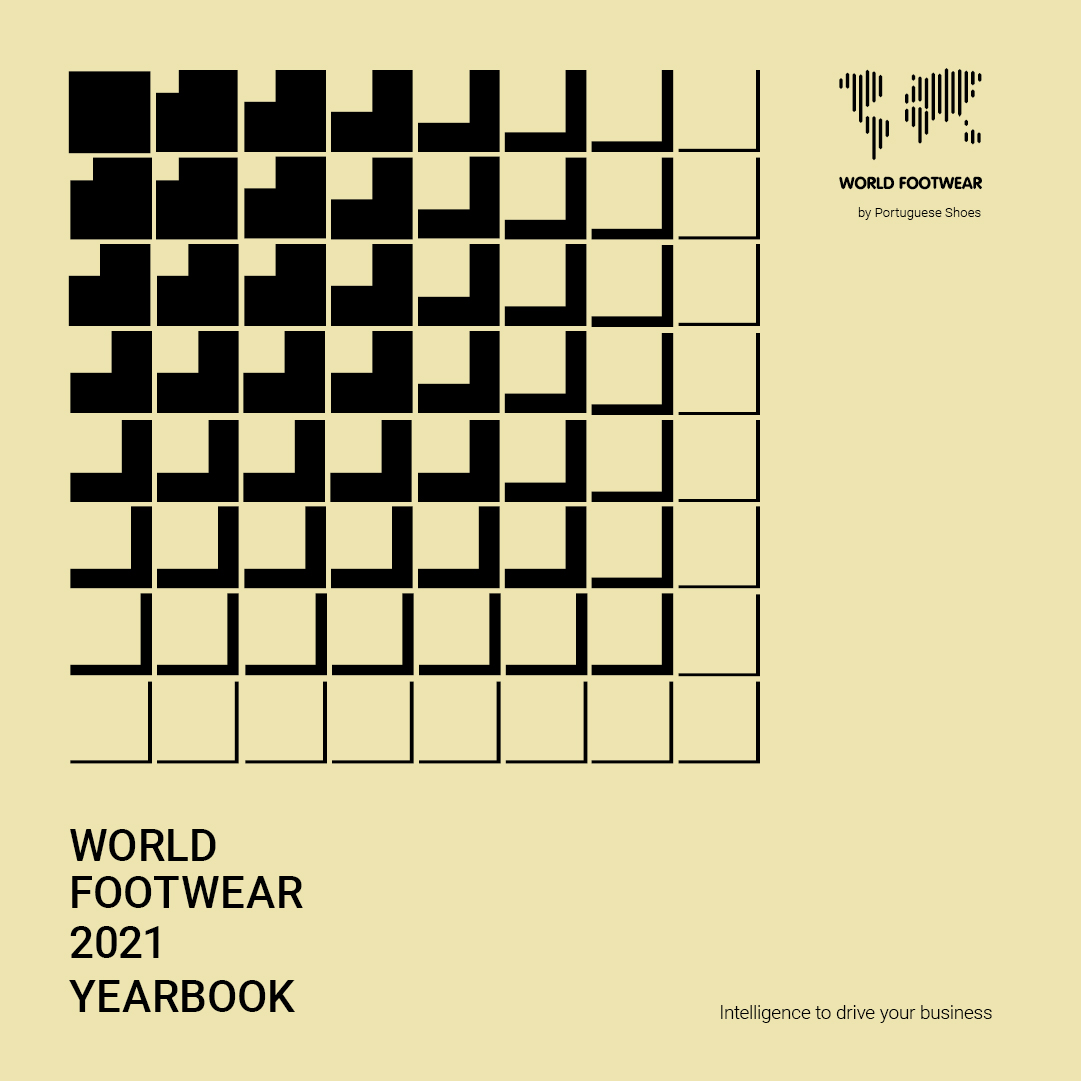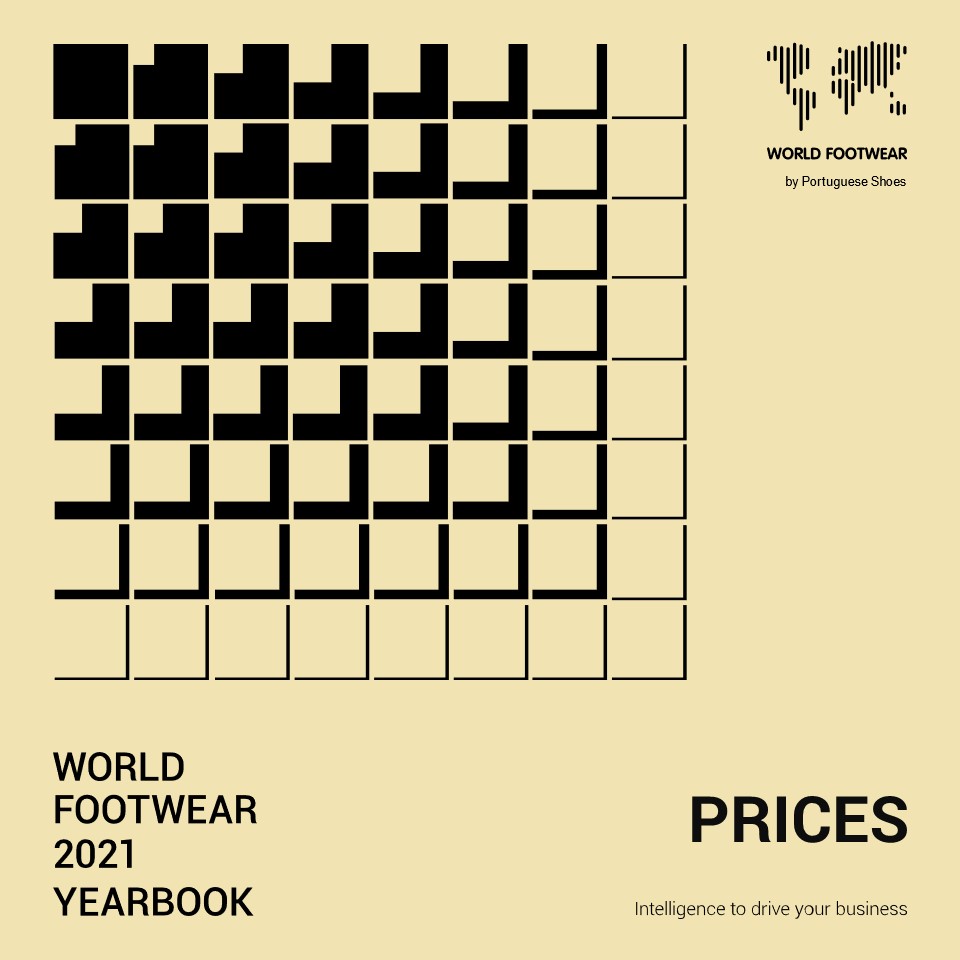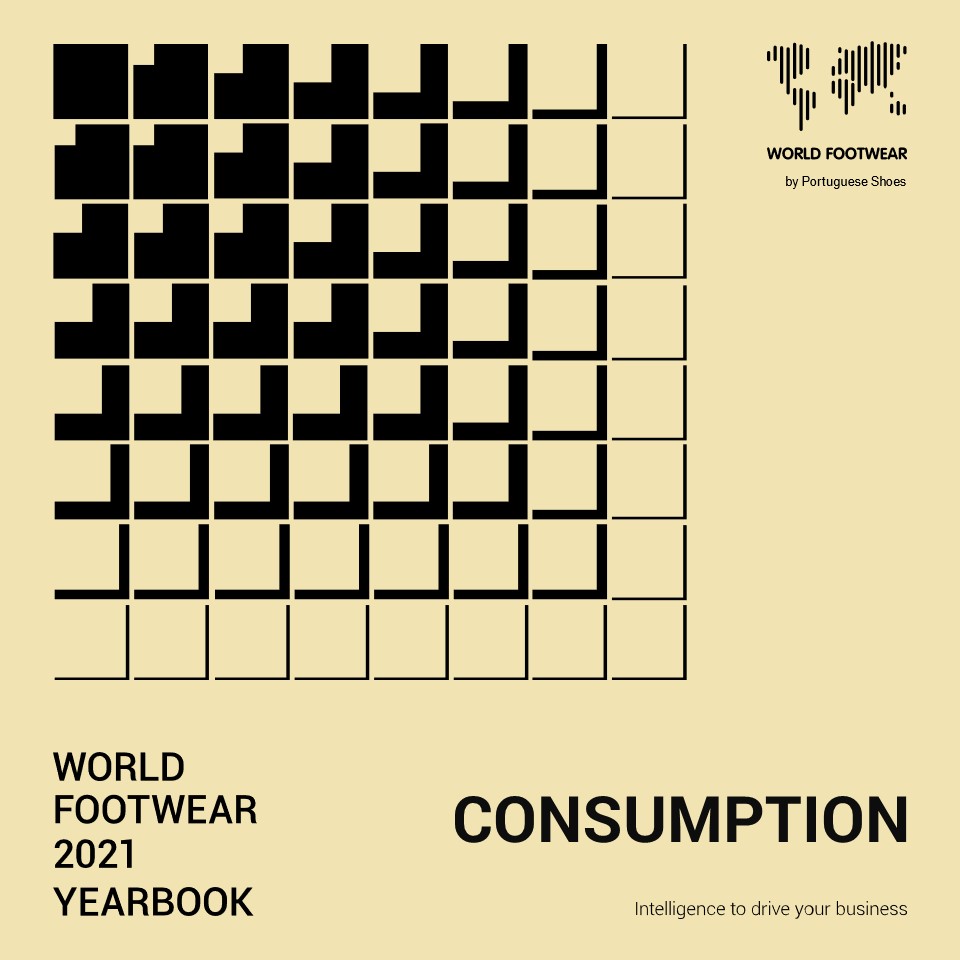Register to continue reading for free
2020: a dark year for the footwear industry but better than the worst forecasts

In 2020 footwear production and exports fell by 15.8% and 19% respectively. Data are taken from the World Footwear 2021 Yearbook just released by APICCAPS, the Portuguese Footwear Association. Previous forecasts were gloomier, and the World Footwear Experts Panel had pointed to a drop in global footwear consumption in 2020 of more than 20%. Final numbers for 2020 in the developed countries of Europe and North America are in line with such expectations. However, Asia and less developed countries outperformed expectations thus supporting a lower plunge in the global footwear industry
Footwear production down by 15.8%. Growth accumulated over a decade wiped away
The COVID-19 pandemic severely hit the footwear business and in 2020 production fell by almost 4 billion pairs, wiping way all the accumulated growth over the previous ten years.
Despite the impact of COVID-19, the geographic distribution of footwear production was not affected. The footwear industry continues to be strongly concentrated in Asia where almost 9 out of every 10 pairs of shoes are manufactured. Even with a global pandemic, Asia managed to increase its share in worldwide production by 0.2 percentage points.
China is the world’s largest footwear producer (54.3%). However, in 2020 the Asian giant reduced its production by more than 2 billion pairs and continued to lose world share (down by one percentage point). This reflects a shift of production into other Asian countries.
Asia accounts for more than half of global consumption
COVID-19 had a strong impact on footwear consumption in the advanced economies of North America and Europe, contributing to the shortening of the gap between per capita consumption across continents. Nonetheless, there are still important geographic differences in consumption patterns. Per capita footwear consumption varies from between 1.5 pairs in Africa to 4.3 pairs in North America.
In 2020 Asia’s consumption accounted for more than half (55.8%) of the grand total worldwide. Europe and North America followed with 13.6% and 13.1%.
In 2020 Asia’s consumption accounted for more than half (55.8%) of the grand total worldwide. Europe and North America followed with 13.6% and 13.1%.
The European Union, when taken as one region, represents the fourth largest consumer market for footwear with 1 763 million pairs consumed in 2020. Impacted by both Brexit and the pandemic, the European Union has dropped two positions in the rankings.
At country level, the distribution of consumption continues gradually to reflect that of the population. Whether this is a structural change in consumer behaviour or whether per capita consumption in advanced economies will rebound once the pandemic is overcome is a question to follow up.
The USA’s share fell below 10% of the world total for the first time. China, on the other hand, exceeded the 20% threshold and, together with India, now accounts for almost one third of world consumption.
Total footwear exported in 2020 (12.1 billion pairs) was down by 19% over the previous year, resulting in the lowest figure registered for the last ten years. In value terms, the decline was smaller (14%) but still taking total exports back to 2013 levels.
European exports increase market share over the last decade
The COVID-19 pandemic disrupted international value chains leading to a reduction in the percentage of production exported which fell from 62% to 59%.
Asia continues to be the source for most of the footwear exported but its share of the world total has been slowly declining over the last ten years. This trend continued in 2020. The same is happening with every other continent but Europe, whose share of world exports has increased by almost 4 percentage points since 2011. This reflects the high intensity of intra-European trade and a strong process of integration within the area.
China continues to be the indisputable leader in footwear exports, but in 2020, and for the first time, Vietnam exceeded 10% of world exports (volume). In value terms, Vietnam became the largest exporter of textile footwear, outstripping China. This is the first time since the World Footwear Yearbook has been published that China is not leading the list of exports for a category of footwear.
The evolution of the average export price per pair continued to show an almost linear upward trend, growing at an average of 3.3% per year since 2011. In 2020, despite the negative demand trends that resulted from the COVID-19 pandemic, price growth accelerated to 6% with the average price exceeding 10 dollars for the first time in the Word Footwear Yearbook’s records
Average worldwide export price exceeds 10 dollars for the first time
Share of textile footwear exports decreased over last 2 years
After a decade of growth, the share of textile footwear in world exports over the last 2 years has decreased in volume, although it has stabilized in value, reflecting an increase in price for this type of footwear.
Leather footwear slightly increased its volume share in the same period, seemingly having reversed the downward trend it had been showing since the beginning of the century and stabilising its value share.
Find more information about the World Footwear 2021 Yearbook by clicking HERE








